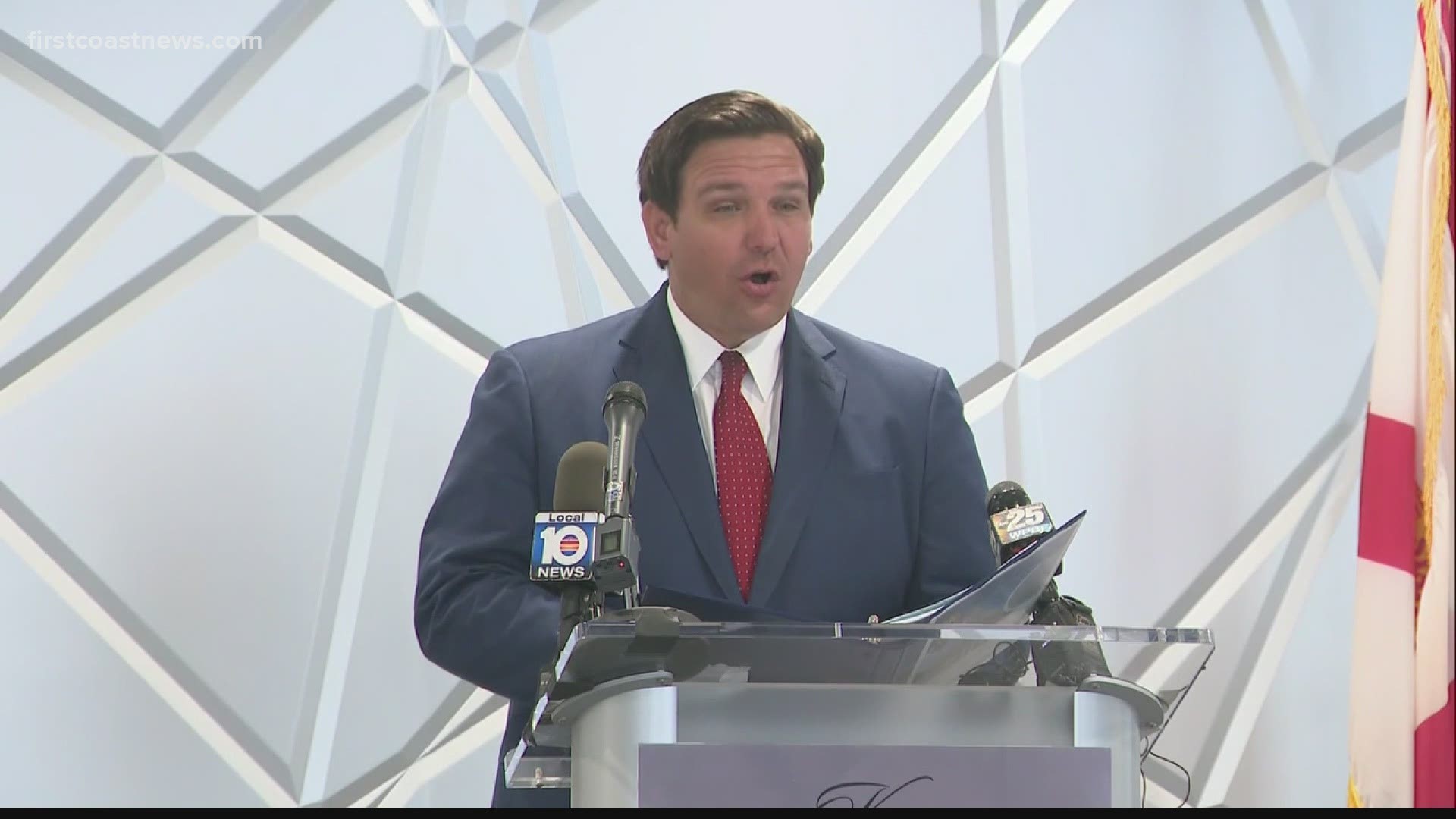JACKSONVILLE, Fla — On Tuesday, Florida Governor Ron DeSantis announced the state will be participating in a program that will allow for $1.4 billion in emergency rental assistance to Floridians.
The Emergency Rental Assistance Program was established under the federal COVID-19 relief legislation signed into law on Dec. 27, 2020.
DeSantis said cities and counties with a population of 200,000 and greater will receive funds directly from the United States Department of the Treasury for the program. While final allocations have not yet been released, it is anticipated that more than $850 million will be provided to the State.
Here's who qualifies for assistance:
- Applicant qualifies for unemployment or has experienced a reduction in household income, incurred significant costs, or experienced a financial hardship due to COVID-19
- Applicant demonstrates a risk of experiencing homelessness or housing instability
- The applicant has a household income at or below 80 percent of the area median income, with priority given to households below 50 percent of the area median income
The State expects disbursement of funds to occur in the coming weeks. DeSantis said additional information on the program will be released as further guidance is provided by the federal government.
For more information about the Emergency Rental Assistance Program, visit this link.
DeSantis said that last week alone, Florida vaccinated 223,000 seniors, which is nearly 70 percent of all people vaccinated.
"Although supplies of vaccine from the federal government remain limited, we are remaining proactive so that when additional supply does come, our infrastructure will be able to process it," DeSantis said on Monday in a video posted to social media.
He said the state has looked to data when it comes to determining who should get the first batches of a COVID-19 vaccine.
That, so far, has included front-line health care workers and people who are age 65 and older.

